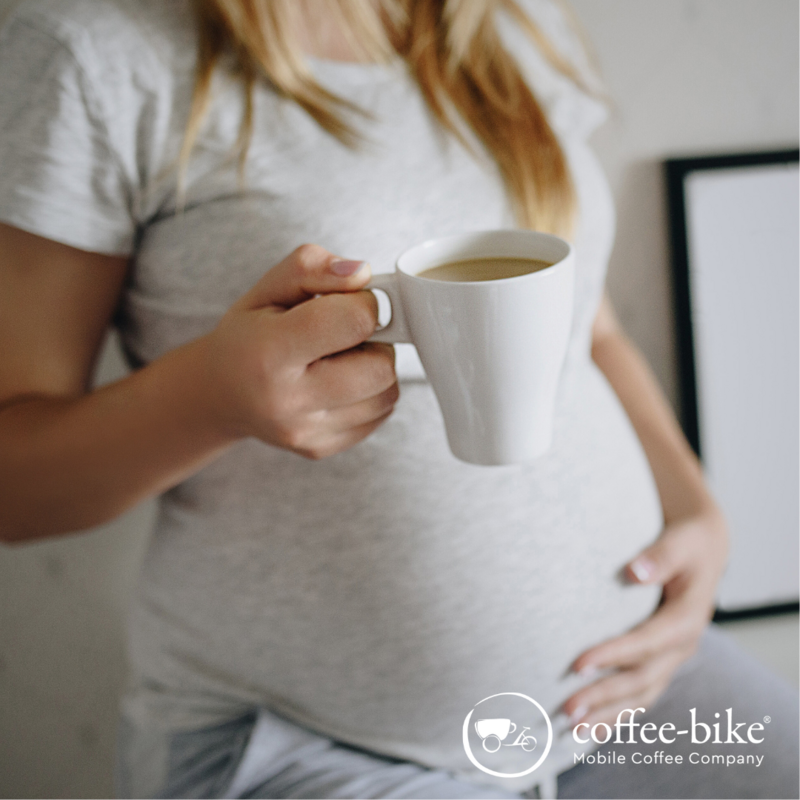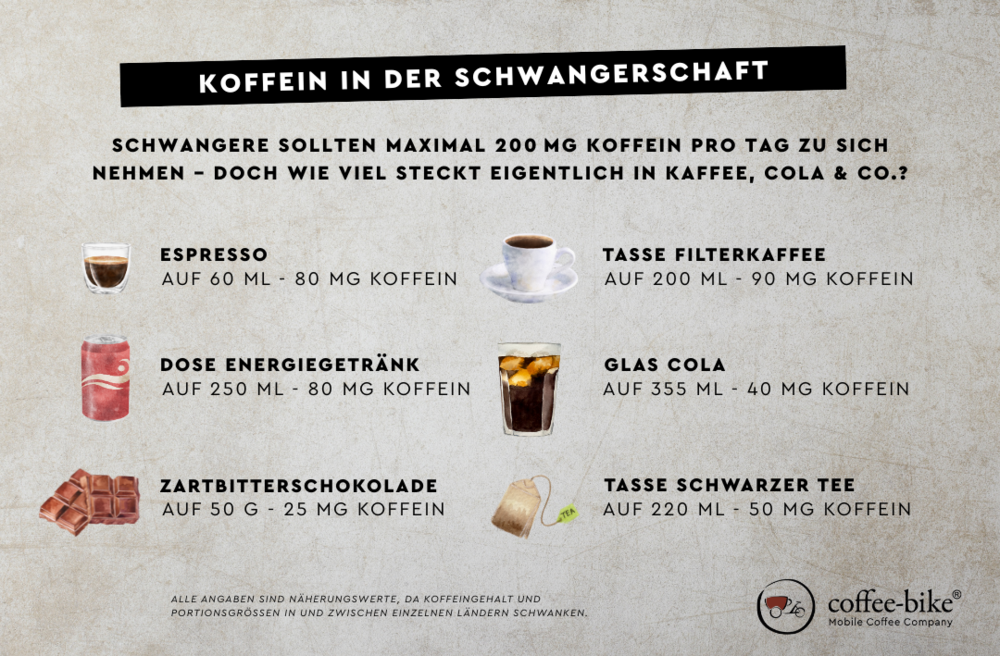How much coffee is allowed during pregnancy?
Most health experts recommend that regular coffee consumption should be limited during pregnancy in order to reduce potential risks. As already mentioned, studies show that a safe upper limit is around 200 milligrams of caffeine per day. This corresponds to about one large or two small cups of coffee. If you want to be on the safe side, you can reduce your caffeine consumption further or switch to caffeine-free alternatives altogether. It is important to realise that caffeine is not only contained in coffee. Other foods and drinks also contribute to the total intake. A balanced diet during pregnancy is therefore particularly important. Did you know, for example, that a chai latte also contains caffeine?
Caffeine during pregnancy: what effects does it have?
How much caffeine is healthy during pregnancy? Health authorities such as the European Food Safety Authority (EFSA) and the WHO recommend limiting caffeine intake during pregnancy. As caffeine accumulates in the body and is broken down more slowly, pregnant women should take particular care to spread their consumption throughout the day. This is because caffeine passes directly into the placenta via the mother's bloodstream and thus into the baby's organism. There it has a similar effect to that of the mother: it stimulates the nerve cells in the brain, makes you more alert and can increase blood pressure. However, the baby's organism lacks the necessary enzymes to break down caffeine. As a result, the caffeine level in the unborn child remains elevated for much longer than in the mother.
Alternatives to coffee - enjoy caffeine-free during pregnancy
Not every woman wants to give up coffee completely during pregnancy, but there are many delicious alternatives. Decaffeinated coffee is one way to enjoy the flavour without the stimulating effect during pregnancy. There are also special types of tea during pregnancy that promote well-being with their ingredients. Is green tea one of them?
Is green tea a healthy option?
Green tea is considered a healthy alternative to coffee, but it also contains caffeine. The caffeine content can vary depending on the variety and brewing time. Is green tea still okay during pregnancy? Experts recommend limiting the consumption of green tea to 2 cups (200 mg caffeine). So the same recommended amount of caffeine per day applies here as for coffee during pregnancy.
Here are three helpful tips for you:
1. Be careful not to exceed the brewing time of two minutes, otherwise the caffeine content will increase.
2. When buying green tea, choose mild varieties such as Sannenbancha, Hojicha, Genmaicha or Bancha, as they contain less caffeine.
3. Go for organic quality - this way you can be sure that your tea is free from pesticides.
Speaking of organic quality: did you know that you can also buy our Caferino espresso and coffee beans for our top-quality organic coffee?
Other caffeine-free drinks for pregnant women
In addition to tea and decaffeinated coffee, there are many other delicious drinks for pregnant women that are suitable for consumption during the 9 months. Warm milk with honey can have a calming effect and is a popular coffee alternative during pregnancy. Freshly squeezed juices or smoothies also provide valuable vitamins. Coconut water is a natural source of electrolytes and can be particularly helpful for morning sickness. There are also various herbal and fruit teas that provide variety. It is important to ensure a healthy diet and sufficient fluid intake during pregnancy.
Caffeine & breastfeeding - What changes after giving birth?
After giving birth, many mothers wonder whether they can drink more coffee again. About two cups of coffee a day is considered a safe dose that should not have any negative effects on your baby. If in doubt, however, you should consult a doctor after the birth.
Can you drink coffee while breastfeeding?
Breastfeeding mothers can drink coffee, but should be careful not to overdo it. Studies suggest that the recommended maximum amount is usually unproblematic for breastfeeding mothers, as it is for pregnant women. To be on the safe side, you should only drink coffee after breastfeeding so that the caffeine content in the breast milk decreases by the next meal. If you notice that your baby is sleeping more restlessly or is irritable, you should reduce your coffee intake.
Conclusion - Coffee during pregnancy: yes or no?
Is regular coffee consumption completely taboo during pregnancy? Pregnant and breastfeeding women who can't start the morning without their morning coffee can breathe a sigh of relief: one large cup a day (or two small cups) is safe. A moderate caffeine intake of up to 200 mg per day is considered safe during pregnancy and while breastfeeding. If you want to be on the safe side, you can avoid caffeine completely during pregnancy or use caffeine-free alternatives.
And as soon as the breastfeeding period is over, nothing stands in the way of enjoying our delicious coffee creations. Have you finished breastfeeding this year? Then try out our 2025 coffee trends or celebrate special moments with your new family and hire your coffee bike for your next event!


![[Translate to UK:] Hands holding a Pumpkin Spice Latte, background decorated with autumn stuff](/fileadmin/_processed_/f/a/csm_cb_blog_pumpkin_spice_latte_67df9e7989.jpg)

